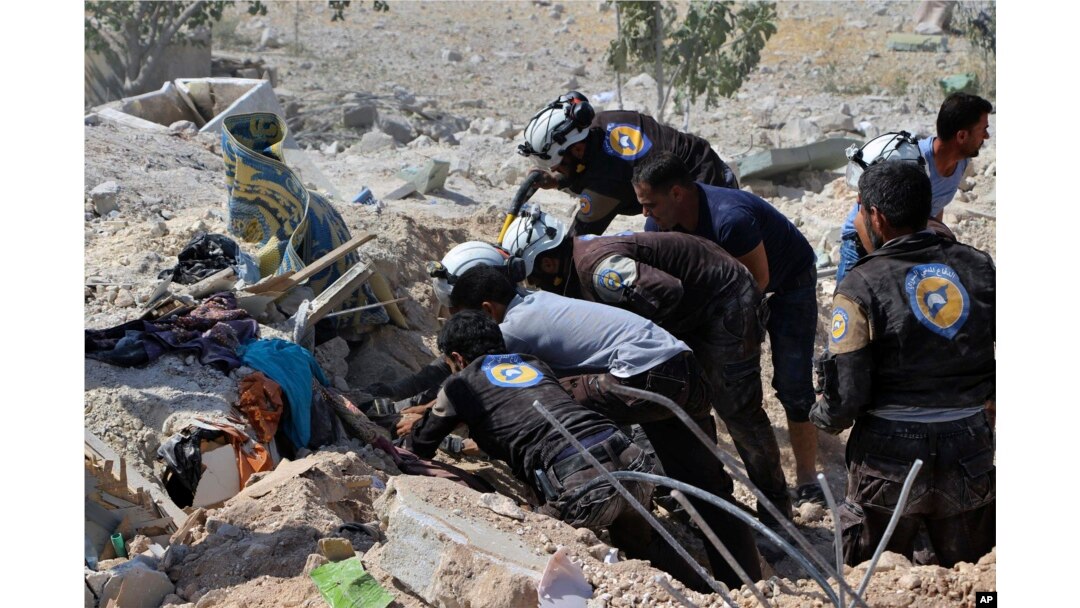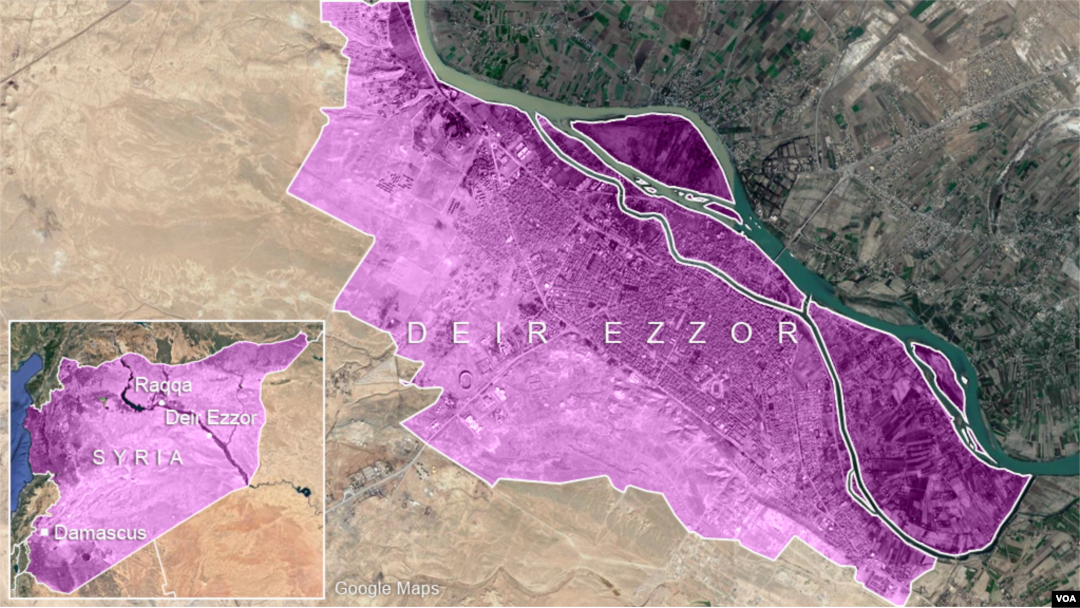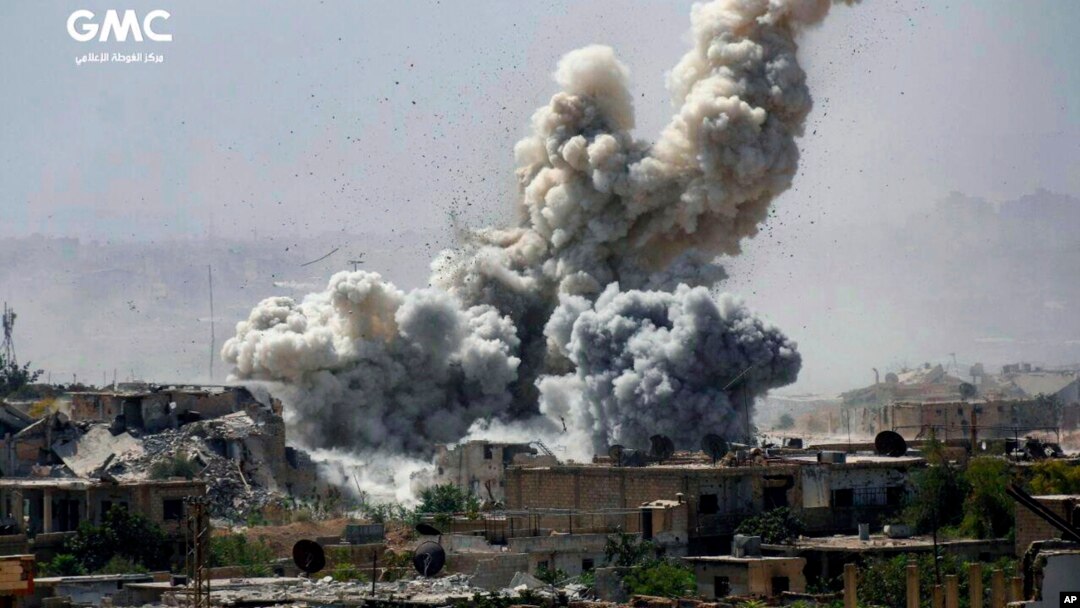A senior U.N. official says humanitarian aid is reaching more Syrians in besieged and hard-to-reach areas than before, but more civilians are at a greater risk of harm from fighting in the country.
U.N. Special Advisor for Syria Jan Egeland says between seven and nine million civilians trapped in besieged and hard-to-reach areas in Syria are receiving humanitarian aid each month.
But this good news, he says, is offset by the United Nations’ inability to protect civilians, including medical and humanitarian workers from attack.
Escalating attacks against civilians
"Perhaps the most worrying development in recent days and weeks is that there is an escalating series of attacks against civilians, and against humanitarian colleagues and humanitarian lifelines, including hospitals, ambulances and health workers in Idlib,” he said.

This photo provided by the Syrian Civil Defense White Helmets, which has been authenticated based on its contents and other AP reporting, shows Civil Defense workers searching through the rubble after airstrikes hit in Khan Sheikhoun.
Egeland says at least five hospitals and two humanitarian warehouses and offices serving one-half million people were attacked during the past week in Idlib, which is controlled by a group of fighters formerly linked to al-Qaida.
He says he does not know who bombed the facilities in Idlib. But airstrikes by Syria and its ally, Russia, have hit the city on numerous occasions.
The U.N. official says he also is worried about civilians who are unable to flee heavy fighting between U.S.-backed coalition forces and Islamic State in Raqqa and between Syrian troops and IS in the city of Deir Ezzor.

“Of course, we cannot in any way tolerate the heavy toll on civilians and on medical and humanitarian workers, just because they live under or next to designated terrorist groups,” he said.
Egeland says the Syrian government and its ally Russia, as well as the Western coalition must do more to avoid indiscriminate attacks against civilian and other protected targets.


